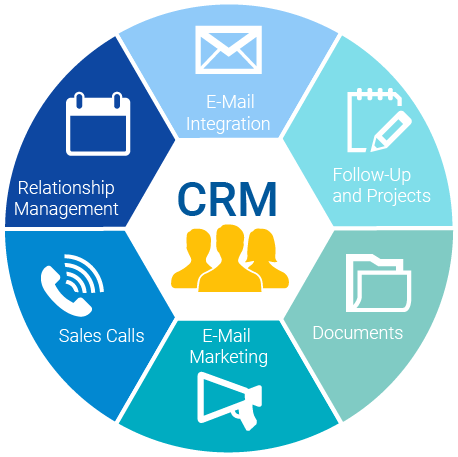CRM Management System
Customer relationship management (CRM) is a business strategy that involves managing interactions with customers to build long-lasting relationships. The goal of CRM is to improve customer satisfaction, increase customer loyalty, and ultimately drive business growth. With the rise of digital technology, CRM has become increasingly important for businesses of all sizes and across all industries.
Features of Customer Relationship Management
A CRM system typically includes a range of features designed to help businesses manage their customer relationships effectively. Some of the key features of a CRM system include:
- Contact Management: A CRM system allows businesses to store and manage customer contact information, including names, addresses, phone numbers, and email addresses. This information is easily accessible and can be used to personalize communication with customers.
- Sales Management: A CRM system allows businesses to manage their sales activities, including lead tracking, opportunity management, and sales forecasting. This information is critical for businesses to make informed decisions about their sales strategies.
- Marketing Automation: A CRM system can be used to automate marketing activities, including email campaigns, social media marketing, and lead generation. This feature helps businesses to reach out to customers in a timely and targeted manner.
- Customer Support: A CRM system can be used to manage customer support activities, including ticketing, customer service, and issue resolution. This feature is critical for businesses to maintain customer satisfaction and loyalty.
- Analytics and Reporting: A CRM system provides businesses with valuable data and analytics on their customer interactions, sales, and marketing activities. This information is critical for businesses to make data-driven decisions and continually improve their customer relationship strategies.
Contact Management
Sales Management
Marketing Automation
Customer Support
Analytics and Reporting
Benefits of CRM Management System
- Improved Customer Satisfaction: A CRM system allows businesses to personalize their communication with customers and provide timely and targeted support. This helps to improve customer satisfaction and loyalty.
- Increased Sales: A CRM system helps businesses to identify new sales opportunities, track leads, and manage the sales process effectively. This can result in increased revenue and business growth.
- Cost Savings: A CRM system can help businesses to reduce costs by automating repetitive tasks, improving efficiency, and streamlining operations.
- Improved Collaboration: A CRM system enables businesses to collaborate across teams and departments, improving communication and overall business effectiveness.
- Data-Driven Decisions: A CRM system provides businesses with valuable data and analytics, enabling them to make informed decisions and continually improve their customer relationship strategies.


Challenges in Implementing Customer Relationship Management
While a CRM system offers several benefits, there are also challenges that businesses may face when implementing the system. Some of the common challenges include:
- Integration: Integrating a CRM system with existing software applications can be challenging, particularly if businesses are using outdated software.
- Data Quality: To fully benefit from a CRM system, businesses need to ensure that their customer data is accurate and up-to-date. This can be challenging if the data is stored across multiple systems.
- Training: To fully benefit from a CRM system, businesses need to train their employees on how to use the system effectively. This can require a significant investment of time and resources.
- Customization: Businesses may require the CRM system to be customized to their specific needs, which can add to the cost and complexity of implementing the system.
Conclusion
CRM is a critical business strategy for businesses looking to improve customer satisfaction, increase customer loyalty, and drive business growth. By investing in a CRM system, businesses can personalize their communication with customers, automate marketing and sales activities, and provide timely and targeted support. While there are challenges in implementing a CRM system, the benefits of using a CRM system outweigh the challenges. By continually improving their customer relationship strategies, businesses can achieve long-term success and growth.

